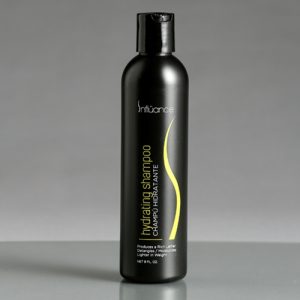5 Common Eating Habits That Lead Hair Loss

We all know that genetic factors are one of the major factors of hair loss, especially male pattern baldness called Androgenic alopecia. But sometimes hair loss can result from malnutrition and dieting. There is a fine line between hair loss and nutrition hence the deficiency of certain nutrients in your meal can adversely affect your hair growth, leading to hair loss and possibly baldness.
Research has shown that deficiency of certain nutrients like vitamin D leads to hair loss.
A 2020 study that included 109 people found that those with hair loss had significantly lower blood levels of vitamin D than people without hair loss. In fact, nearly 80% of the people with hair loss had low vitamin D levels.
Below are foods, supplements, and eating habits that may contribute to hair loss in some people.
Mercury-rich fishes

High concentration of mercury in your meal can affect your hair growth. Mercury is particularly found in certain fishes like swordfish, mackerel, sushi and certain tuna. High consumption of the aforementioned can lead to hair loss hence you need to lower the risk by replacing the mercury-rich fishes with shrimp, salmon, and light tuna because they contain low concentration of mercury.
High consumption of processed sugar.

According to today, When people eat sugar or carbs, the sugar floods the blood, causing a spike of insulin and androgens, which bind to hair follicles and cause the hair to fall out. When people eat sugar or carbs, the sugar floods the blood, causing a spike of insulin and androgens, which bind to hair follicles and cause the hair to fall out.
To explain further, high consumption of sugar results in an increase in blood glucose and this inevitably boosts the production of insulin in the body. High concentration of insulin in the body leads to an increase of male sex hormones, also called androgens and this can cause the hair follicles to shrink prematurely which will ultimately lead to early baldness.
Protein malnutrition

Protein is the building block of hair which means protein malnutrition may cause hair loss. According to Kaiser Permanente, some people who go on crash diets that exclude protein or who have abnormal eating habits may develop protein malnutrition. When this happens, the body will help save protein by shifting growing hairs into the resting phase. To wrap it up, insufficient protein consumption puts you at a higher risk of experiencing hair loss.
Excess consumption of vitamin A

Vitamins are fantastic and an essential body nutrient but excess consumption of vitamin A can lead to hair thinning and hair loss. Vitamin A is essential for good vision and a reasonable amount of vitamin A consumption helps to build our immune systems that shields us against disease and it also ensures that the reproductive system is functioning effectively. But excess level of this nutrients in the body can cause a handful of health implications including alopecia.
A research conducted in 2018, which reviews 47 other research papers on this topic, identifies excessive Vitamin A as one of the most important toxic agents involved in the development of alopecia.
According to Wimpole Clinic, Vitamin A can have detrimental effects on both the hair and body. If you take too many supplements of the Retinol kind over a prolonged period of time, the hair follicles will go into overdrive. This means that your hair will be reaching the end of the growth phase too quickly and falling out. If your body is unable to make new hair quickly to replace it, you can end up experiencing hair thinning and in severe cases, baldness.
Calcium Deficiency

Sometimes hair loss may be as a result of low calcium levels in the body especially in HPT patients. Calcium deficiency will not only affect your hair growth but also affect your overall physical health.
Furthermore, calcium deficiency can cause hair to fall out or make the hair follicles smaller so your hair strands end up being thinner. Also, calcium is important for your hair, and if you are also experiencing vitamin D deficiency (which is needed for absorbing calcium), your hair may fall out .

 Hydrating Shampoo 2oz
Hydrating Shampoo 2oz
Comments
No comment yet.